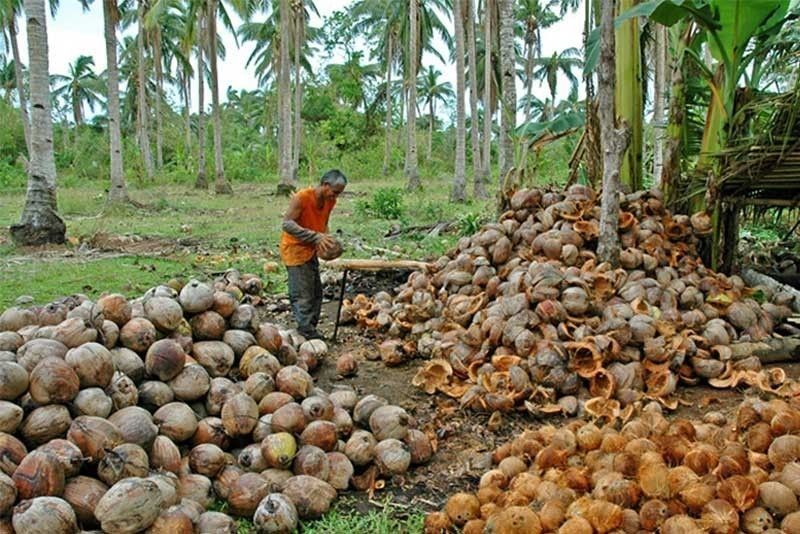'Government to lose P1 billion coco levy funds’

MANILA, Philippines — The government stands to lose P1 billion in coconut levy funds to a private firm due to a ruling of the Supreme Court (SC) that voided a mortgage with the state-controlled United Coconut Planters Bank (UCPB), a former bank executive warned yesterday.
Jesus Arranza, a former board member of UCPB who remains a stockholder in the bank, said a 2017 decision of the third division of the SC cost UCPB about P1 billion in funds that are supposed to benefit coconut farmers in the country pursuant to previous decisions of the court.
Arranza, also chairman of the Federation of Philippine Industries and former president of the United Coconut Association of the Philippines, urged the SC to set aside the ruling on the case involving the mortgage of Revere Realty and Development Corp. owned by businessman Jose Go in UCPB over properties in Lucena City belonging to a couple with whom he had a joint venture that fizzled out.
“While the government is now the owner of the majority of the outstanding shares of stocks of UCPB, which have been considered part of the so-called coconut levy fund, it must be stressed that (the SC) had also directed that the same should be utilized for the benefit of the coconut farmers and the development of the coconut industry. Whatever action the (SC) will take in this case will definitely impact on the coconut farmers and the coconut industry, in particular, and the government, in general,” he stressed in a five-page letter addressed to all justices of SC.
Arranza pointed to alleged “irregularities” in the ruling, believing that the third division might have violated the SC’s internal rules in resolving the case involving Lucena Grand Central Terminal Inc. (LGCTI).
Arranza claimed that three justices – now Ombudsman Samuel Martires, now retired Noel Tijam and Alexander Gesmundo – voted to concur with the assailed decision even after only two to three days since they were designated to the third division.
“How could the three above-named justices of the third division (Gesmundo, Martires and Tijam) have adequately studied the cases (which I understand already consists of around 2,000 pages) only for a period of two or three days, before the decision dated Aug. 16, 2017 was promulgated?” he asked.
Arranza cited internal rules of the SC, which require the writer of the decision to prepare the draft decision and send to the other justices at least seven days before voting.
“It is likely that this rule was not complied with as the said three justices became members of the third division only two or three days before the decision dated Aug. 16, 2017 was issued,” he alleged.
The UCPB stockholder asked the SC to correct the infirmity as he also called for resolution of the motions for reconsideration and to elevate the case to the full court.
“If an irregularity indeed attended the promulgation of the said decision, it is rather difficult to expect the same members of the third division who signed the decision to reverse themselves and/or in the process, expose the irregularity committed,” Arranza added.
The SC third division had reversed the Court of Appeals’ March 2014 ruling that affirmed the UCPB mortgage of Revere over the property of spouses Felix and Carmen Chua.
In 1997, Go and the Chuas had entered into a joint venture to develop the 44-hectare property in Ilayang Dupay into a subdivision but it did not push through. Still, several deeds of absolute sale were executed putting the lands in Revere’s name to hold in trust for the Chuas.
Meanwhile, the Chuas executed a mortgage with UCPB to secure their personal loans and corporate obligations for LGCTI.
Unknown to the Chuas, Go and Revere took out a mortgage over the properties. When the land was foreclosed, the Chuas were prompted to ask UCPB to apply the proceeds only to their obligations and not Go’s, but the bank did not heed the request.
The SC agreed with the Chuas that they had not consented to Go’s mortgage over the land, which they still owned.
The SC said UCPB should have exercised greater care in handling the mortgages and determined the real ownership of the properties.
The SC added that the CA’s upholding of the Go mortgage meant the Chuas would still be left with P68 million in liabilities since the foreclosure proceeds could not be entirely applied against their obligations.
- Latest
- Trending


























